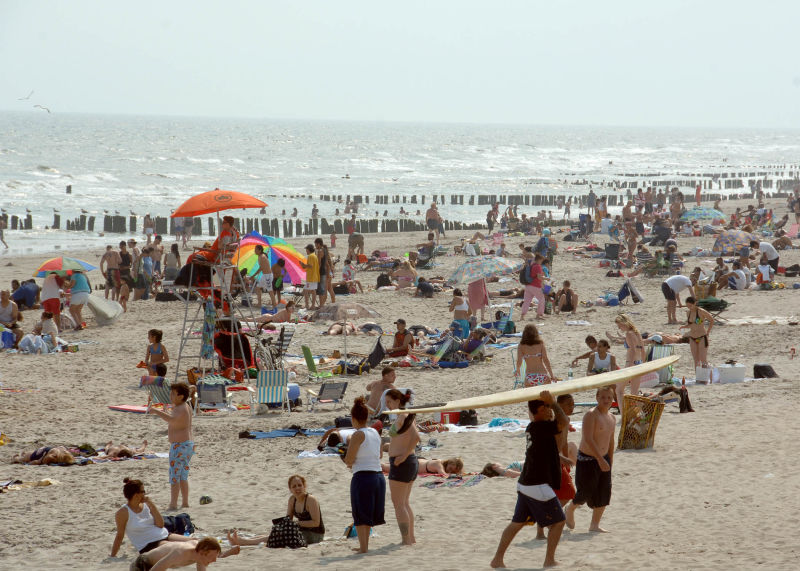
Rockaway Beach (NYC Parks Dept/ Malcolm Pinckney)
May 21, 2020 By Allie Griffin
New York City Comptroller Scott Stringer wants the city to open beaches and pools — and refuted the mayor’s pool-less plan for summer in the Big Apple.
Mayor Bill de Blasio has prohibited swimming at city beaches — which would normally open for the season this Memorial Day weekend — thus far and declared public pools closed all summer due to the coronavirus pandemic.
Stringer said de Blasio has offered no plans for the beaches while New Yorkers begin to feel quarantine fatigue as the days get warmer.
Last Friday, de Blasio implied that beaches would not be opening anytime soon.
“The beaches and the public pools, that’s not in the cards right now,” he said at City Hall. “Again, we’ll see what the future brings, but not right now.”
In an op-ed published today, Stringer said that is the wrong decision.
He argued that beaches and public pools should open with a restricted capacity to allow social distancing.
“The reality is clear: our city has quarantine fatigue,” he wrote. “Of course, staying home will always be the safest option — but for those who do choose to venture out, we should be giving them honest, evidence-based information to help them make the safest possible choices.”
Mounting research shows that the virus is more difficult to be spread outdoors, Stringer wrote.
He said if beaches don’t open in a regulated way, people will resort to alternative activities that are more dangerous.
“If we don’t give people low-risk options, they will choose high-risk ones: swimming in too-swift rivers and waterways, opening the neighborhood fire hydrant, attending large gatherings, and mingling in bars and restaurants.”
Instead, Stringer outlined a plan to open beaches and pools in a safe way.
He suggested setting a capacity limit at each beach and pool based on the size of each and establishing a reservation system for public usage.
Reservations for beach and pool access would be distributed via a blind lottery in each community district.
The reservations would be staggered throughout the day to reduce the risk of overcrowding on beaches, but also on the subways and buses New Yorkers take to get there, Stringer said.
Beaches and pools should also have one access point and another exit point to keep the flow of people moving in one direction and minimize contant, he added.
Parks Department staff and public health ambassadors would help enforce social distancing on the sand and poolsides, Stringer said.
Lastly, he said the city should close or reduce access to changing rooms and other indoor facilities at beaches and pools and set up more outdoor showers.
“These are just ideas — but the point is to try something,” Stringer wrote.
The comptroller said the city and its residents must adapt to a new normal instead of just staying home and away from public spaces, like beaches and pools.
“By tackling social distancing with creativity and ingenuity, we can work towards a sustainable, safe and socially-distanced summer in the city that all New Yorkers can responsibly enjoy,” he wrote.





